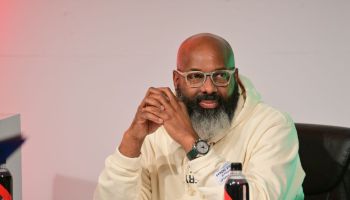A recent study published in the Journal of General Internal Medicine found that a lack of communication is causing confusion in the doctor-patient relationship, with both sides unclear about what the other is thinking. The survey also found that the “disconnect” between doctors and patients is greater with minority patients.
“This is where we truly talk about the art of medicine,” says Dr. Willarda Edwards, President of the National Medical Association (NMA). The NMA’s mission, according to its website, is “to advance the art and science of medicine for people of African descent.”
Healthcare professionals “need to incorporate cultural competence” into their work, adds Dr. Edwards. That includes “active listening,” both giving patients facts and advice and hearing their feedback, whether they’re African American, Caribbean, or from some other background.
“Cultural awareness [means showing] respect for [a patient’s] culture and to solicit their help to communicate better with them,” says Dr. Edwards.
If given the option, there are certainly people who would choose a physician who shares their cultural background, but Dr. Edwards says less than five percent of doctors in the US are Black (less than six percent are Hispanic). While the NMA advocates diversity in the medical workforce, the more immediate solution is cultural sensitivity.
Dr. Otis Brawley, Chief Medical and Scientific Officer at the American Cancer Society, agrees that communication is a factor. But among Blacks, there is also a “distrust” of doctors that Dr. Brawley calls “appropriate.”
“Doctors are in business and have been known to do procedures they don’t need to do, but they get paid to do them. It’s real and it’s unfortunate,” he says.
Moreover, there are many patients, especially among the poor, who don’t find a doctor and stick with them long enough to build a trusting relationship. Older Black patients also tend to keep problems to themselves even when they’re in pain. “They want to be polite. They don’t want to inconvenience the doctor,” says Dr. Brawley.
Doctors have begun to recognize the existence of a disparity in the care of Black patients. A 2007 report from the National Institute of Medicine titled “Unequal Truth: Confronting Racial and Ethnic Disparities in Medicine” found that racial and “ethnic minorities tend to receive a lower quality of healthcare than non-minorities, even when access-related factors, such as patients’ insurance status and income, are controlled.” Dr. Edwards says increased acknowledgment of the disparity by medical professionals is “a step in the right direction.”
Still, the 2009 National Healthcare Disparities Report, published in March 2010, found that healthcare disparities persist.
So talk to your doctor. Tell them where it hurts, which diseases run in your family, what you feel comfortable or uncomfortable with, what you can and can’t do. Ask questions and be sure you understand the answers. The quality of the healthcare you receive — or don’t receive — may be determined by your ability to express yourself.
Read more: http://www.essence.com/lifestyle/health/communication_is_the_best_medicine.php#ixzz0x6gbOo7e











